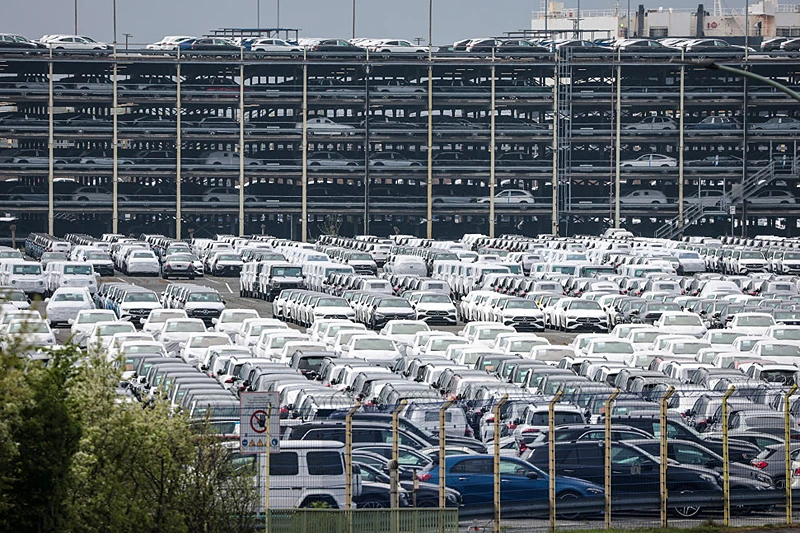
OAN Staff James Meyers
10:03 AM – Tuesday, April 29, 2025
The Trump administration announced on Tuesday that they will roll back automotive tariffs on imported car parts.
The announced rollback means that automakers facing Trump’s 25% tariff on foreign vehicles, which were implemented in early April, will not have to pay separately on materials, such as aluminum and steel –according to the Wall Street Journal (WSJ).
Additionally, changes will be reciprocal (backdated) during the rollback, allowing manufacturers to possibly receive rebates for tariffs that were already paid. Tariffs planned for imported auto parts, which were set at 25% and set to take effect May 3rd, will be adjusted as well.
The move will now give automakers a reimbursement of up to 3.75% of the value of each vehicle produced in the U.S. during the first year of when the order is set in place.
In the following year, reimbursements would decrease to 2.5% and then eventually be eliminated.
The 47th president is anticipated to sign the order before departing the White House for a Michigan rally, commemorating the first 100 days of the Trump administration.
Meanwhile, the Trump administration has already been in recent discussions with automakers regarding the tariffs. The president has been adamant that this is a necessary means to increase domestic manufacturing.
“President Trump is building an important partnership with both the domestic automakers and our great American workers,” Commerce Secretary Howard Lutnick told the WSJ.
“This deal will be a major victory for the president’s trade policy by rewarding companies who are already manufacturing domestically, while providing a runway to manufacturers who have expressed their commitment in investing in America and expanding domestic manufacturing.”
Automakers quickly welcomed the move.
“Ford welcomes and appreciates these decisions by President Trump, which will help mitigate the impact of tariffs on automakers, suppliers and consumers,” Ford CEO Jim Farley said in a statement.
“We will continue to work closely with the administration in support of the president’s vision for a healthy and growing auto industry in America.”
Farley noted that his company “sees policies that encourage exports and ensure affordable supply chains to promote more domestic growth as essential.”
Additionally, General Motors (GM) CEO Mary Barra also applauded the move, saying: “We appreciate the productive conversations with the president and his administration and look forward to continuing to work together.”
The latest measures will allow automakers increased time to shift supply chains to the U.S.
According to the WSJ, automakers will be required to apply for the reimbursements, but how the refunds will be dispersed, still remains up in the air.
Morgan Stanley projected an average increase of $6,000 per car, which translates between 10% to 12% price increase for consumers.
The Trump administration has been in continued negotiations with dozens of countries after the 47th president put a pause on his sweeping tariffs on April 9th. The White House has also been adamant about trade deals with other nations, arguing there have been 18 one-for-one proposals on the table.
Stay informed! Receive breaking news blasts directly to your inbox for free. Subscribe here. https://www.oann.com/alerts
What do YOU think? Click here to jump to the comments!
Sponsored Content Below

